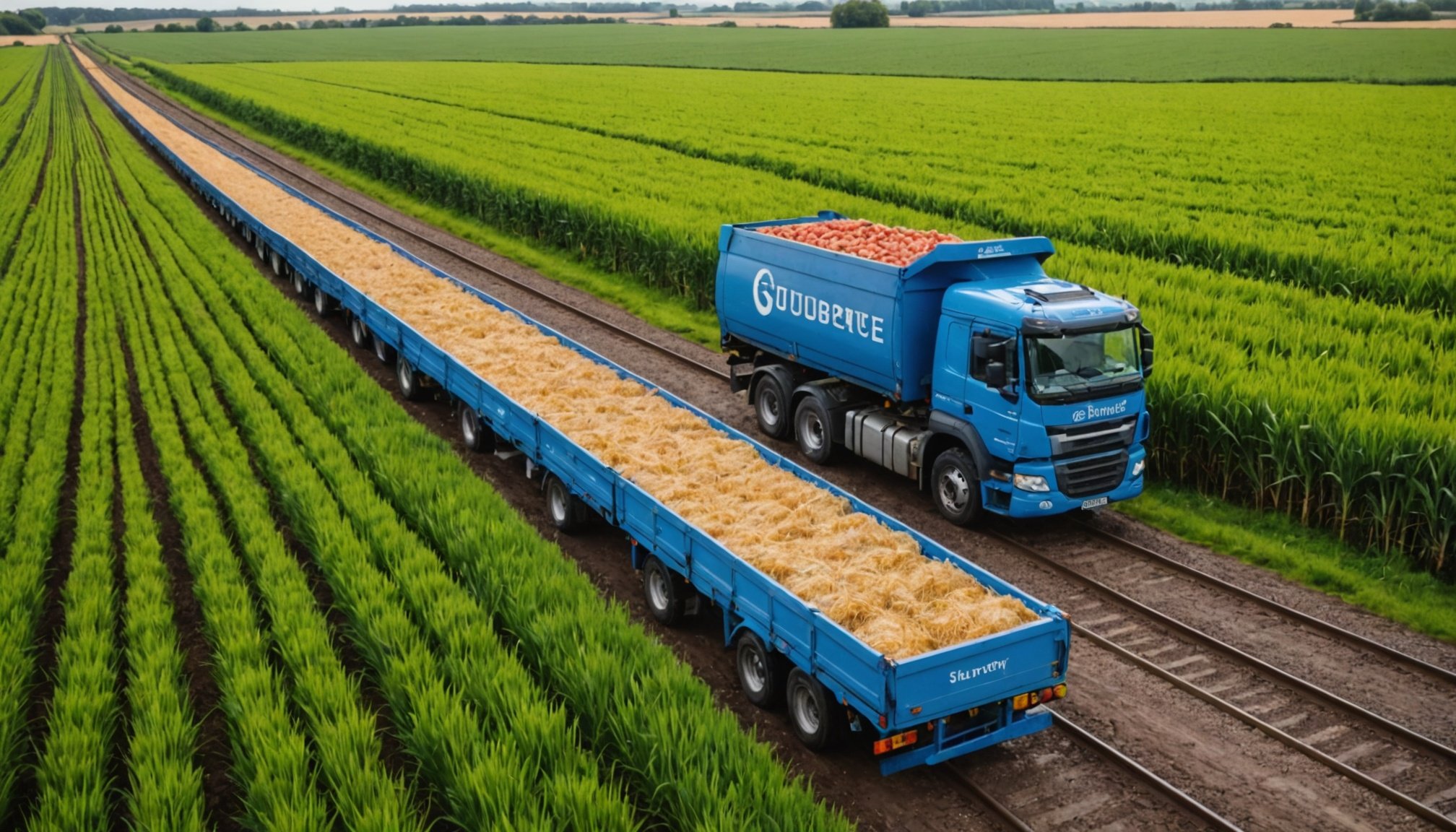Importance of Supply Chain Traceability in the UK Food Industry
In the UK food industry, the need for supply chain transparency has never been more crucial. Traceability plays a significant role for both food producers and consumers. For producers, it ensures compliance with food safety regulations and helps safeguard public health standards. For instance, knowing precisely where each ingredient originated helps companies act swiftly in case of a food safety issue, such as contamination.
On the consumer side, traceability is a vital factor in enhancing trust and brand reputation. When consumers can trace a product’s journey, from farm to table, they gain confidence in the product’s safety and authenticity. Moreover, transparency in the supply chain allows brands to actively demonstrate their commitment to quality and ethical practices, thereby building long-term consumer loyalty.
Also to see : Mastering cybersecurity: key strategies for uk businesses to effectively implement training programs
Thus, implementing effective traceability measures not only aligns with regulatory obligations but also supports businesses in fostering trust, enhancing their reputation, and ultimately improving consumer confidence.
Key Approaches to Enhance Supply Chain Transparency
When strengthening supply chain transparency, various transparency methodologies come into play. Embracing these approaches enables both operational excellence and stakeholder trust.
In the same genre : Embracing the future: key tactics for uk manufacturers to thrive in the era of industry 4.0
Leveraging Technology for Enhanced Traceability
Technology plays a pivotal role in enhancing traceability frameworks. Advanced digital tools, such as blockchain and IoT, offer revolutionary ways to track products from origin to destination. With blockchain, data entries are both immutable and secure, offering solutions for maintaining product integrity. Furthermore, IoT devices enable real-time data collection, enhancing monitoring precision.
Regulatory Compliance Standards
Compliance with UK regulations is a critical factor. Industry norms dictate specific traceability practices, ensuring that food safety is not compromised. by adhering to these standards, companies can prevent food-related crises efficiently.
Building Partnerships with Stakeholders
A collaborative approach with all stakeholders within the supply chain ecosystem is indispensable. Engaging manufacturers, distributors, and retailers fosters a comprehensive traceability strategy. This collaboration reduces risks and ensures all parties are committed to maintaining transparency. Successful partnerships often rely on shared objectives and open communication, which can drive traceability efforts forward.
These combined strategies help to construct a robust foundation for transparency, thereby bolstering public trust and ensuring smoother operations.
Technologies Shaping Supply Chain Traceability
The ever-evolving landscape of the supply chain is significantly shaped by cutting-edge technologies like Blockchain, IoT, and data analytics. Blockchain technology is instrumental in creating immutable records that are both transparent and secure. This technology enhances supply chain transparency by ensuring that all transactions are visible but unalterable, fostering a trustworthy environment.
Meanwhile, IoT devices have revolutionised real-time monitoring; they effectively collect and transmit data across the supply chain, providing actionable insights that are critical for decision-making and efficiency. These devices support food safety by allowing continuous tracking of conditions, such as temperature or humidity, ensuring product integrity from farm to table.
Additionally, data analytics plays a pivotal role by analysing the vast amounts of data gathered through IoT. This analysis identifies patterns and trends, enabling companies to predict issues and optimise their processes. Through effective use of blockchain, IoT, and data analytics, businesses can achieve higher standards of product authenticity and food safety, benefiting both producers and consumers alike.
Case Studies of Successful Traceability Implementation
Exploring best practices and success stories within the UK food industry provides valuable insights into effective traceability implementations. Examining real-world scenarios demonstrates how transparency methodologies can be successfully integrated.
Case Study 1: A UK Farm’s Journey
A local farm exemplified transparency by implementing a robust tracing system. By embracing blockchain technology, the farm achieved a high degree of supply chain transparency, ensuring every step from farm to table is verifiable. This approach not only ensured product authenticity but also strengthened consumer trust.
Case Study 2: Innovations in Food Processing
A leading food processor adopted innovative tracking solutions, incorporating IoT devices for real-time data monitoring. This integration allowed for precise monitoring of environmental factors, safeguarding food safety standards. Such practices enhance confidence both internally and among consumers.
Case Study 3: Retailer Initiatives for Transparency
Retailers focused on maintaining accountability through advanced data analytics. By analysing supply chain data, they optimised processes, identified trends, and reduced inefficiencies. These strategies reinforced brand reputation and bolstered customer loyalty by championing transparency and ethical practices.
Challenges in Implementing Traceability Solutions
Implementing traceability solutions in the UK food industry presents several challenges. Food producers frequently encounter barriers such as technological integration difficulties and resource constraints. Adopting new technologies often requires substantial initial investments, posing financial hurdles, particularly for smaller businesses. Furthermore, the complex nature of supply chains can complicate integrating innovative technological solutions, making it a daunting task.
In addition to these challenges, resistance to change within organisations can hinder the adoption of traceability measures. Overcoming this involves addressing concerns through comprehensive risk management strategies that clearly articulate the benefits of traceability.
Strategies to effectively navigate these challenges include emphasising the long-term advantages, such as enhanced supply chain transparency and improved food safety. Training and support for staff can also play a crucial role in transitioning smoothly to new systems, while demonstrating product authenticity as a selling point can reinforce the value proposition. Employing these strategies can help businesses embrace change and successfully implement traceability measures.
Practical Tools for Enhancing Supply Chain Traceability
In the evolving landscape of supply chain management, software solutions and tracking systems have become indispensable. These tools are designed to enhance transparency methodologies and address challenges that impede traceability.
Must-Have Software Tools
When exploring software solutions, prioritising those with capabilities for real-time data collection and analysis is crucial. Tools that integrate seamlessly into existing systems aid in achieving transparent operations. Systems that support stakeholder engagement provide a collaborative platform for enhanced information sharing and accountability. Select software offering comprehensive insights, enabling decision-makers to optimise supply chain processes effectively.
Integrating Tracking Systems
The integration of tracking systems into daily operations is paramount for robust supply chain transparency. Careful planning can ensure that these systems are adaptable and efficient. The core aim is to have an end-to-end understanding of product movement, from suppliers to consumers. Integration strategies require staying aligned with operational strategies while prioritising user-friendly systems.
Training and support significantly impact system adoption success. By investing in training, organisations empower their teams to utilise new tools proficiently, ensuring frictionless functionality and improved food safety. Proper implementation of these tools reinforces both product authenticity and consumer trust, indispensable elements for brand reputation.











